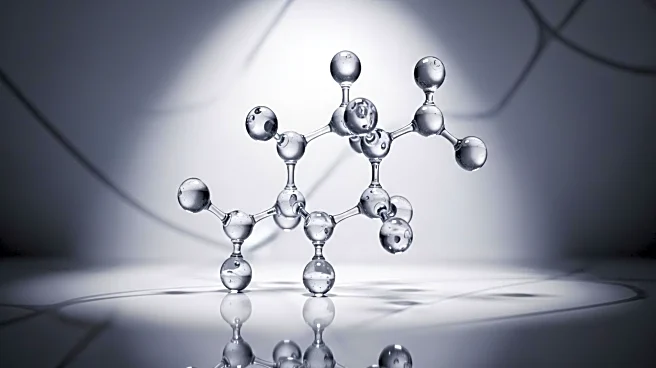What's Happening?
Omar M. Yaghi, a professor at the University of California, Berkeley, has been awarded the 2025 Nobel Prize in Chemistry alongside Susumu Kitagawa from Japan and Richard Robson from Australia. The trio was recognized for their development of metal-organic frameworks, a new form of molecular architecture. These frameworks are novel materials with large internal cavities that can host guest molecules, akin to rooms in a hotel. This innovation allows for applications such as harvesting water from desert air, capturing carbon dioxide, and storing toxic gases. The Royal Swedish Academy of Sciences highlighted the potential of these discoveries to address significant global challenges.
Why It's Important?
The award underscores the critical role of innovative chemistry in addressing pressing global issues such as climate change and resource scarcity. Metal-organic frameworks have the potential to revolutionize industries by providing new methods for gas storage and separation, which could lead to more efficient energy use and reduced environmental impact. The recognition of Yaghi's work also highlights the importance of international collaboration in scientific advancements, as the laureates come from diverse backgrounds and countries. This development could inspire further research and investment in sustainable technologies.
What's Next?
Following the Nobel recognition, there may be increased interest and funding in the field of metal-organic frameworks, potentially accelerating their development and application. Industries related to environmental technology, energy, and materials science might explore partnerships or research initiatives to leverage these frameworks for commercial use. Additionally, educational institutions may see a rise in students pursuing studies in chemistry and materials science, inspired by the laureates' achievements.









